This idea that the maternal instinct, as it sounds like your father in law might say, is innate and automatic and uniquely female—that is a myth. It's just not true.
You're listening to Burnt Toast. This is the podcast where we talk about diet culture, fatphobia, parenting, and health. I'm Virginia Sole-Smith and I also write the Burnt Toast newsletter.
Today I am chatting with Chelsea Conaboy. Chelsea is a journalist who specializes in personal and public health, who has written for Mother Jones, Political, The Week, and the Boston Globe, among others. Chelsea lives in Maine with her husband, their two young sons, and, as she puts it, her own changing maternal brain. And that's what we're here to talk about today!
Chelsea is also the author of an amazing new book, Mother Brain: How Neuroscience Is Rewriting the Story of Parenthood. Reading Chelsea's work has challenged and reset a lot of my own understanding about how we think and talk about “mommy brain.” She makes the case for why we have to expand our understanding of parenting beyond cisgender women to be more inclusive, both because it's the best thing for our kids and our families and because it's actually quite pivotal to how humans evolved.
A lot of this conversation, particularly Chelsea's explanations of the neuroscience and the understanding of the plasticity of our own brains, is stuff that it was brand new to me, it's going to be new to a lot of you and I think it's so affirming and empowering to understand.
Episode 61 Transcript
Virginia
Hi Chelsea! Why don't we start by having you tell us a little bit about yourself and your work?
Chelsea
I'm a longtime newspaper journalist. I was a reporter and editor for a long time and for the past few years I've been a freelancer writing a lot about public health, in its broadest definition, and health policy. And I'm a mom of two kids, ages five and seven.
Virginia
We are here to talk about your new book, Mother Brain: How Neuroscience Is Rewriting the Story of Parenthood. I should, full disclosure, note that Chelsea and I share a publisher and editor. So we were set up as author friends in that way, but I would be asking you to be on the podcast regardless because the book is fantastic. And just exactly the kind of conversation we need to be having and that I love having here. So, the title is Mother Brain, but you're very clear from the get go that you take a more inclusive definition of that concept. So talk a little bit about who you're speaking to in this book and also how gender and biology impact this idea of the “Mother Brain.”
Chelsea
I'm glad we're starting here, it's really important. A parent is anyone who commits their time and energy to caring for children. And there are different mechanisms for how we get to a parental brain depending on whether we're gestational parent or not, but we arrive at very similar places regardless. The one key point that I make over and over in this book is that it's experience that matters most. Time and attention are the things that shape the brain. I wanted to get at how not only have we created such an incomplete understanding of what “mommy brain” is, as something that undermines women, but we've also oversimplified the idea of who gets to do this, whose biology determines them to be really good caregivers. And the answer is everyone. Everyone who commits themselves to this work is changed by it at a neurobiological level.
Virginia
We think of that as a modern invention that (some?) men now take an active role in caregiving and that nonbinary and trans folks can be parents. But I loved how you talked in the book about how this has actually always been happening. It's a core thing that distinguishes humans from other species, that we've always had this idea that everyone can be a caregiver.
Chelsea
It's really ancient. It predates humans in the sense that the circuitry for caregiving is this fundamental evolutionary lever that shapes social structures of species across time. It's why we have such a diversity of parenting structures across animals, and of fathering. But in humans, it became important in the way that it wasn't for other primates before us, because human mothers started having babies closer together, and human babies couldn't rely only on their mothers to take care of them. So there were other adults that stepped in and kind of allowed the species to flourish the way it did, and created the hypersociality of the human brain. That is rooted in the idea that mothers couldn't do it all, that other adults had to help.
Virginia
And not necessarily just female adults. We can think more comprehensively about gender with this, too, right?
Chelsea
I mean, it was actually thought that it was probably grandmothers who were like the original helpers. Grandmothers who lived a little bit past their reproductive years started helping and allowed their daughters to have more kids more quickly. But the idea is also that they passed on their willingness to engage and be captured by their babies. And that became a human trait, it enabled what is referred to as “alloparenting,” or other parenting, that it's not just mothers, anyone can do it.
Virginia
Fascinating. And such an important part of the conversation when we talk about how motherhood is portrayed now as this solo operation of self sacrifice.
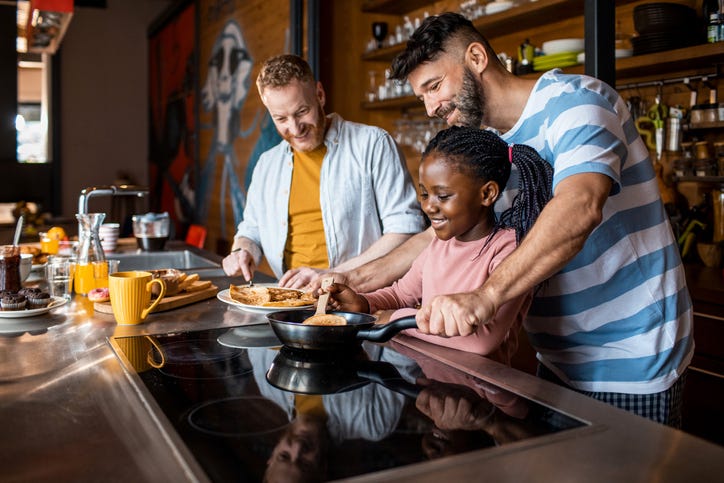
Chelsea
It was never meant to be that.
Virginia
Let's talk a little more about some of the popular culture misinterpretations. I mean, we hear about terms like “mommy brain,” as you said, that serves to undermine women. We also talk a lot about maternal instincts. I was thinking, reading your book, that I'm planning to give it to my father-in-law.1 Because an anecdote he loves to tell is how his wife would always wake up for the crying babies and he would sleep through it. And he always framed this to me as like, “It's just the mother's instinct! You'll hear the baby cry before your husband will.” And, “That's just the mother's instinct to just be tuned into the baby that way.” So can you debunk that for me, please?
Chelsea
I mean, it's possible that she did hear it more than he did because she had thousands of nights of practice of getting up and doing it. Sometimes she probably woke up before the baby even cried because she knew that they were going to be hungry soon because she had the practice. You know, experience matters. So it became part of how her parental brain worked. Also, maybe because she couldn't rely on her husband to get up, too, so it was up to her.
I mean, maternal instincts are a really tricky thing to talk about in some ways. It's kind of like a comforting idea for some people to feel like we have this maternal intuition that will get us through the hard stuff. The issue that I have with it is how we arrive at this idea that the maternal instinct, as it sounds like your father in law might say, is innate and automatic and uniquely female. That is a myth. It's just not true. The parental brain is something that takes time to develop. It's not automatic. It's something that grows in us, and it can be really grueling, especially at the beginning. And it keeps growing and changing as we grow and change. And it's a major transformation. And it's one that needs time and support and attention to go well. And it's one that comes with real risks, too. The idea of “maternal instinct” ignores all of that. It was written into science by men who held fast to these religious beliefs around womanhood and who also had a stated interest in compelling women, especially white well off women, to have more babies. There were feminists at that time, in the early part of the 20th century, who were saying, “You know, this is a ruse. We know that what you're trying to do here is to make it look easy, and it's not easy.”
Virginia
One of the things I took away from your book is just like, it's so comforting to realize I’m not alone in that experience of expecting to have the baby arrive and just immediately know what to do, and then realizing you have no fucking clue what to do. It's so hard, that transition that a lot of us go through. You can end up feeling like it's something you did wrong and that it's your fault for not tapping into this more immediate sense of maternal wisdom or whatever.
Chelsea
I mean, that's why I wrote this book. That's how I felt when my son was born in 2015. I was just completely blindsided, especially by the intensity of the worry I felt for him and the complete lack of certainty that I knew what to do, or that I could even figure it out. And how consuming that feeling was and my complete lack of words to describe it. I mean I went looking for them and really went down the rabbit hole of the of the brain research and found a completely different story than the one I feel like I had been fed.
Virginia
I want to circle back to what you were just talking about with male scientists creating this narrative, because I was fascinated by your reporting on the history of scientific research on motherhood, and on parenting advice. I think of parenting content as another modern invention, but clearly not. Men have been telling women how to parent for centuries, and yet, doing so little of the actual parenting work. How do you make sense of that? How has it done a disservice to all parents?
Chelsea
I think this has a lot to do with the rise of the expert. In 1877, Charles Darwin published a journal about his own son's development, and that kind of launched the field of child development. Following his example, lots of women started forming child study societies documenting their own children's growth and sharing what they learned. Very soon after that, they were told that they couldn't be trusted for this work that their own maternal instincts made it impossible for them to be objective observers.
Virginia
Wow.
Chelsea
And at the same time, medicine and science was really walled off to women. So instead, we got this long string of men publishing books about child rearing. Some were better than others. Some were absurd. My favorite is John Watson in, I think. 1928, telling women to put their kids in a hole in the backyard from the time they were born and to avoid kissing them at all costs.
Virginia
I think I wrote “holy fuck” in the margins on that part. He was like, “Just put your baby in a sandpit?”
Chelsea
Yes, yes. And I mean, that book sold tens of thousands of copies in its first months and it really influenced parenting for about a decade. It's really laughable, but then sometimes I think, well, some of the parenting advice we get today is no less laughable? It's just the landscape is different now. Things can be critiqued in real time, there's more diversity of ideas, there are more women and nonbinary parents giving the advice, but we still definitely have this sense that good mothers produce good children and that if we just Google enough, we'll find the answers. And that's almost never true.
I think the disservice that this causes is really the anxiety that it creates in us all and the judgment. And, how that can deflect from what we really need and what our kids need, which is connection. They need our our time and attention and also a community of adults around them who can connect with them as well.
Virginia
I mean, there's a great parallel with diet culture here, which is always where my brain goes. It's ignoring the fact that you can be a really “good” mother, but if you can't afford rent or you don't have childcare, you know, these larger structural issues that we just don't have to deal with, if we're too busy telling parents the one thing you have to do to have a healthy baby is co-sleep or put your child in a dirt hole or whatever the trend.
I was thinking about it, too, and I was like, this dirt hole thing could totally become some new Instagram parenting trend. Like, “free range!” It has sort of gentle parenting vibes of, “just put up a Montessori gate” or “use a floor bed.”
Chelsea
Child-led sandpit exploration.
Virginia
Oh my God. That's a hashtag. That's great.
I do want to talk a bit more about the brain chemistry piece of it, because that's obviously a big focus of the book. How parenting changes our brain in these important and necessary-for-the-good-of-society ways is very interesting. Talk a little bit about what happens, on a fundamental level to our brains. What about these brain changes surprised you the most?
Chelsea
The changes to the parental brain are fundamentally adaptive. I think that's an important place to start because it's so counter to the narrative we often talk about with mothers and brains. They occur because this new role is just dramatically different than what we, at least the vast majority of us, have been in before. We become wholly responsible for the survival of a tiny, nonverbal, human who is vulnerable, and who doesn't have the brain development yet to regulate themselves and their own physiology.
So at first, the parental brain changes in ways to make us really hyper responsive. We talk a lot about the dramatic shifts in hormones that happen during pregnancy and what they mean for our bodies and childbirth. But that talk typically ends at baby blues and the sense that for most people, things sort of settle out after a few weeks. When in reality, this flood of hormones primes the brain for this period of plasticity or malleability, so that babies, who are these powerful stimuli, can go to work and shape us to meet their own needs.
What happens is brain regions that are related to motivation, and vigilance, and how we make meaning of the world around us become really active. And at least in that early postpartum period that can feel really intense and also deliberately colored by worry. We're driven to pay attention to our babies, to respond quickly to their needs, and to try and try again to meet them. Knowing that we're going to make mistakes and that and we're going to have to respond really quickly.
So that's hyper-responsiveness and then over time, it's thought that things shift to this more regulated state, that parents fine tune their ability to recognize their child's cues, and to predict what they need. So brain regions involved in self-regulation and social processing, and what's called theory of mind, or how we read and respond to other people, those also change both in function and in structure. One researcher described it to me as if the neural networks that support our ability to understand ourselves and our own needs in a social context, get extended to also now include our children and like our extension of ourselves at a neural level.
Virginia
That's fascinating because you do have a felt experience of getting better at parenting. I mean new things happen. It gets hard again at different ages, but I do think a lot of us have an experience of competence increasing and feeling more qualified to make these calls. So it's just fascinating to understand that your brain has literally done that work, that you're evolving in this role.
Chelsea
And there's some research that looks at second or subsequent pregnancies and everyone's experiences are different. I know people have had harder second pregnancies in terms of their mental state, but there is some research that indicates that you become less hyper reactive in terms of your neural activity, because you've got that infrastructure in place that, you kind of know how to do the prediction piece better. So it's less intense the second time around.
Virginia
And again, I just want to reiterate that you're saying most of this is coming from the experience of caretaking, not the biological process of pregnancy, right?
Chelsea
Let's clarify that. So, the vast majority of research in this area is still in gestational, cisgender mothers. But what there is in fathers in particular, and some other non-gestational parents, foster mothers and adoptive mothers, shows that there are similar neuro-like hormonal shifts that occur when you become a parent, even if you're not a birthing parent. That is thought to also prime the brain for this hyper responsiveness. And there is a global circuitry that develops over time. With parenting, it's a little bit different, but it's more similar than not, and it is, remarkably, really tied to how much time you spend with your baby.
Virginia
Interesting.
Chelsea
So there are these fascinating studies that look at heterosexual male-female couples, and then gay fathers, half of whom are biologically related to their children, and looks at their their brains over time. And they found that for primary caregiving fathers, the circuitry was very similar to the mothers who were in the study considered primary caregivers also. And in certain measures of connectivity, it was more profound the more time they actually logged with their children.
Virginia
I appreciate that clarification. And this is not to downplay the profound changes that one does experience if you're a birthing parent, obviously.
Chelsea
It’s kind of like a jumpstart intensity. But yeah, it's not the only way, there are multiple paths.
Virginia
We can take a more inclusive approach to it.
The other thought I just kept having as I was reading your book was how refreshing it was to read this analysis of parenting, and of motherhood as a brain-based activity—as something that we bring experience and skills and learning to—because so often the cultural conversation is the dismissal of the mommy brain that we talked about. But then also it's like all about mothers’ bodies, right? Like it's how your body changes, will you get your body back, the shame of having a mom body.
And that's another way we both narrow who can qualify as a parent and we reduce the experience and the work that's going into it—because we're making it all this sort of embodied thing. What do you think we gain when we change the focus to talking about parenting in terms of brains?
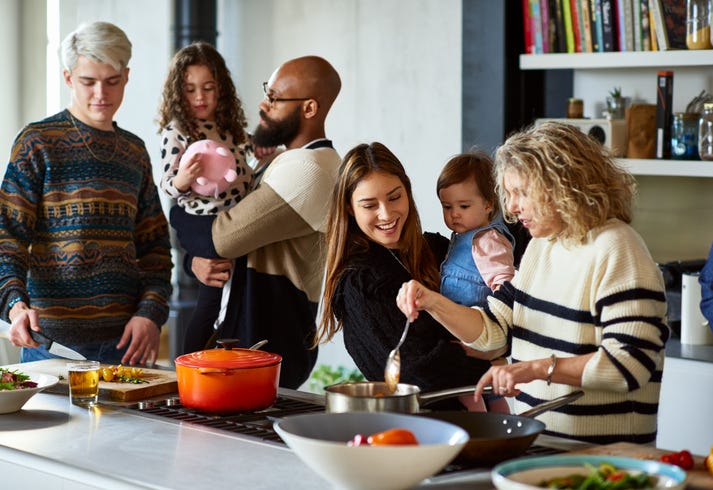
Chelsea
I mean, most importantly, I think we what we gain is a chance to really prepare for what this life stage means for us. It would have made a huge difference to me, if I had understood this neurobiological process, before I was in crisis mode, you know, as a new parent. I think the science can help us to talk to expectant parents about what they need, and also put our own individual experiences into into context.
There's a really interesting parallel here with the teenage brain research and we've really come to understand much more in recent years about what happens in in our teenage years and to see it as a time that the brain requires extra support. Science has been shaping policies around school start times. Delaying start times for teenagers, that comes from brain research and the science on on how much sleep the brain needs to really go through the changes that that people are experiencing then. It's changed policies around approaches to discipline. It's changed public health messaging around substance use and other risky behaviors. It's also been used in schools to help teenagers to understand themselves and their own mental health and what they're experiencing.
I feel like the parental brain science can be sort of like that, too, if we use it the right way. It should affect the policies that we make—or fail to make as is often the case right now—around what young families need. It should also change how we talk about ourselves and how we how we prepare people to make this transition to parenthood.
And I think the other point I'd make is talking about the parental brain in a broader way should give us more of an appreciation for ourselves. I think one of the most surprising pieces of the the parental brain science is this stuff that's looking at how long lasting these changes are. There are these fascinating studies that are taking big data banks of brain imaging, like thousands of people, and comparing the brains of parents and non-parents in older age. So people who are in their 50s, 60s, 70s and older. And what they're finding is that parents brains are what they say what they call “younger looking,” like they've had fewer effects of aging. One group of researchers described parenthood as, you know, a lifetime of cognitive and social demands, as a kind of enrichment. And that is very different than how we typically talk about it. And I love thinking of it that way.
Virginia
Yes, yes. I will quickly add that, of course, we're not saying you have to have children, there are certainly other ways to seek enrichment in your life. And enjoy all the sleep that you get by being child-free.
But that is a really interesting reframing because the typical narrative is that parenting ages you so fast. Parenting is all gray hairs, which is both an ageist way of looking at it and so reductive.
I also want to circle back to what you just mentioned about using the science for better policies, because you and I were talking before we started recording, and you're saying how there's also a lot of opportunity here to serve reproductive justice.
Chelsea
I think there's two pieces to this one. There's been a lot that's written and been said in the past couple of months about, what does it mean to carry a child and what are the real risks and long term effects of that and and how the law doesn't account for them at all to the to the birthing parents life. I think this brain science just adds evidence to the case that's already clear. But reproductive justice, as it's been defined by the the black women and trans people who have really led that movement, is about access to reproductive health. We typically think of abortion and contraceptives, but it's also about being able to thrive in parenthood if you choose it, to have access to both the perinatal care you need and the resources to parent well. And many people lack those things now.
And I mean, the perinatal care in particular, we need so much on that front. I think that the parental brain science can be used to improve it. We don't routinely screen expectant parents for risk factors for postpartum mood and anxiety disorders, even though we know some of them and we know that referring people to therapy can help. There's so many pieces of this to talk about in terms of post childbirth. Mortality and morbidity, but also the absolute absence of postpartum care in the United States is really awful and like glaringly in need of correction. We have one six week postpartum appointment. That's the standard and yet, we know that many people experience crises of mental health long before that. And there's research that indicates that significant percentage of people screen negative at that six week appointment, but then go on to develop postpartum depression. There are so many layers here where we can do a better job and I think the science can help.
Virginia
We really couldn't be doing a worse job, so any opportunity to improve. Paid leave, more affordable childcare. I mean, it's a very long list. But I'm really excited for your book to be out there and helping to bolster the fight.
You talked a little bit about what inspired you to write the book, because of landing in that postpartum period and having that experience. How has doing the book—especially, you've been working on the book during a pandemic with young children—changed and informed your own parenting?
Chelsea
It helps me cut myself some slack, primarily. It's something that I really struggle with a lot. But it's definitely helped me to shed some of the societal expectations around how I should feel as a mother and how mothering my particular kids should feel. All of that. The whole section of the book dissecting parenting advice, I wrote a lot of that during the height of the pandemic, when things felt so impossible and messy. And it was pretty grueling to go through all of that, and to grapple with my own internalized messaging around motherhood. But ultimately, I arrived back at this basic point that I think the science makes, which is just about connection, that I can look at my kids and figure out what they need and that I will make some mistakes and that those are prediction errors that will help me to do better next time.
And all of that can sort of like sound trite, except it's real, like on a brain level. We're growing and getting better at this all the time.
Virginia
It's a message we try to teach our kids, right? That making mistakes is part of learning. I think I've said to my kids, “this is how your brain grows.” So why are we not giving ourselves the same? I'm definitely going to use that the next time I screw up, which will surely be later today. While my brain is growing, I am becoming a better parent through this experience.
Butter
Chelsea
My kids are finally at the stage where they're both into chapter books, and I couldn't be more excited about it. I pretty much wanted to have kids just so that I could read to them. And that was really fun in these first few years, but then how many times can you read Grumpy Ladybug. So I'm excited to be in this new stage, and we just read The Wild Robot and The Wild Robot Escapes. I just love them so much. We live in Maine and the author's from Maine so it feels like the island that the wild robot ends up on is from Maine. So we've been like going out and pretending that we're the wild robot and on the coast of Maine.
Virginia
That is so fun. My older daughter read those recently. My younger one is about to turn five, so she's probably ready for that as a read aloud soon. Yeah, that's a great suggestion. We've been reading a lot of Dory Fantasmagory.
Chelsea
Oh, that's our one of our all time favorites.
Virginia
My younger daughter really is Dory and my older daughter is named Violet so Beatrix really connects with Dory and having a bossy older sister named Violet. It’s a real emotional journey she's on with that.
Chelsea
I feel like the first time I saw my kids laugh at a book to the point of uncontrollable laughter was with with those. They’re just so good.
Virginia
They’re so good. I wish she would write more. Beatrix will like quote lines. We’ll be somewhere else and she'll quote a Dory line.
Chelsea
Banana phone.
Virginia
Yeah, so many things. I could have a whole Dory appreciation episode.
You and I were also talking about how you are interested in meadows, like making a meadow in your garden. So I was like, oh, I'll do my butter about how much I love my meadow!
We live on a small mountain in the Hudson Valley. So our yard is all sloping, we have no flat backyard. So having a big sloping area of lawn made no sense to us so we have turned it over to a wildflower and wild grasses meadow. We're fortunate we have this big area we could do. You could do a smaller scale version, absolutely. But especially this time of year, the pollinators are out in full force. And every morning I'm out there, just like getting very excited. This morning I was like watching a monarch and I was like, the monarchs I'm so worried about them. And I have them here. This is a monarch sanctuary. So what are you thinking about doing? Tell me!
Chelsea
There's a part of our yard that the woods are kind of taking it over again. But it's just messy and I don't want more lawn, I know that for sure. I love the idea of deliberately creating something where the point is to not maintain it, or like minimal maintenance. And yeah, the pollinator piece is huge. One thing I'm not sure is like, how do you keep it from becoming woods again? I guess that's just the mow.
Virginia
Usually, once a year you mow it. That keeps the woody shrubs and trees from getting too much of a foothold. You time your mowing, usually, like late spring. You leave it up over the winter, if you can handle how messy it looks. And I actually think it's sort of beautiful, the dead seed heads and grasses can look really beautiful. It did mean we lost our sledding hill. So it was controversial locally in my house. But it is what it is. So you leave it up for the winter because it creates a lot of habitat for hibernating animals and bugs, and then once spring hits and things have kind of warmed up and critters have woken up and are out of their burrows and leaves or whatever, then you mow it for the season and let it grow up fresh. So yeah, so you don't really have too much of a problem with woody plants if you stick to that.
The bigger issue is sorting out if you have invasive weeds. We did have a situation where like 95% of the meadow was this plant called Mugwort which doesn't have a lot of wildlife value. And just in becoming a monoculture was not as pretty as I wanted it to be. It doesn't have a nice flower. And it was preventing us from planting other things. So we did ultimately spray. We tried hand pulling, but it was such a big infestation that would have been like years of our life. We sprayed last summer, all the invasives, let them die down. We mowed in November, so that it was kind of just scorched earth at that point, and then we did a big wildflower seed mix that we spread out in December because a lot of them need a cold period. So we did a big heavy seeding in December. And then this year, it's mostly been grasses coming up, because the grasses kind of wake up first. We've had a lot of milkweed. There's some that come up right away. But then next year, there's some wildflowers that start by pushing down their roots and then hopefully next year, we'll get more flowers in there. So it's a it is a long process, and it's surprisingly complex. But those are the basic things: figuring out what you have, if you need to eradicate invasives, doing that, and then doing a seeding. You can also just like, let it grow and see what comes up. You may be better off than I was.
Chelsea
I think we'll be somewhere in between. We have a little bit of invasives but it's a smaller space, I think, than what you have. So I think we'll be able to manage some of that. But I love it. Yours is beautiful. We also have turkeys in our backyard often and I just feels like it could be a good wildlife space, too.
Virginia
Yeah, definitely. Oh, that's really cool. Well, keep me posted.
On that note, Chelsea, thank you so much for being here. We want everyone to go get a copy of Mother Brain, which is out this week or the week that this airs. Where can folks find you and support your work?
Chelsea
They can buy the book at their local bookstore and they can read more about it at MotherBrainBook.com.
Virginia
Amazing. Thank you so much for being here.
Chelsea
Thank you for having me. It's been such a pleasure.
The Burnt Toast Podcast is produced and hosted by me, Virginia Sole-Smith. You can follow me on Instagram or Twitter.
Burnt Toast transcripts and essays are edited and formatted by Corinne Fay, who runs @SellTradePlus, an Instagram account where you can buy and sell plus size clothing.
The Burnt Toast logo is by Deanna Lowe.
Our theme music is by Jeff Bailey and Chris Maxwell.
Tommy Harron is our audio engineer.
Thanks for listening and for supporting independent anti diet journalism. I’ll talk to you soon.
Just noting for the record that I love my in-laws and we enjoy a good scientific debate. I also previously corrected my father-in-law’s long-held belief that a cat would eat its owner’s dead body but a dog would never with science and he was delighted to be wrong.




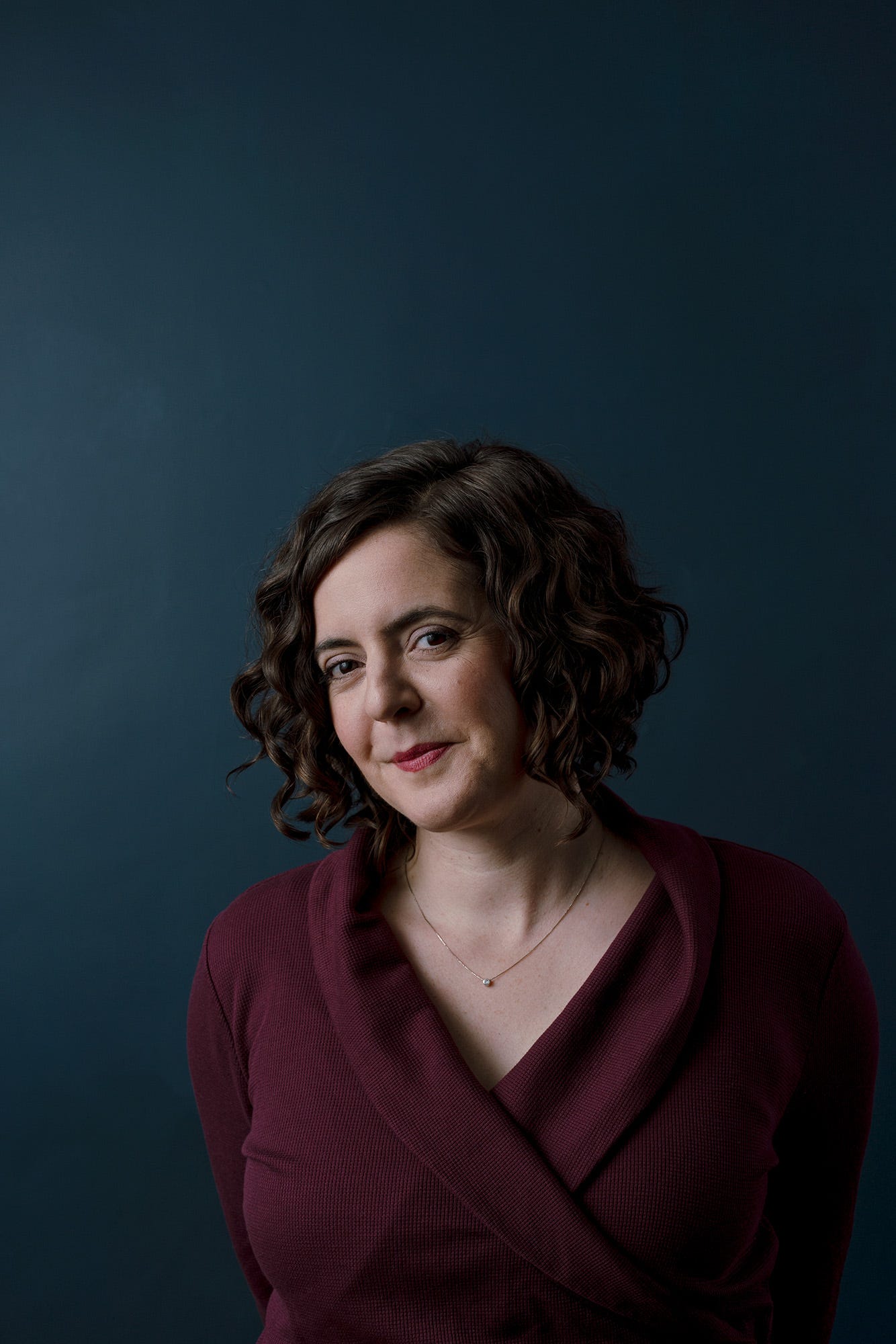

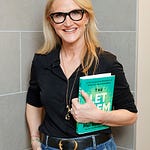
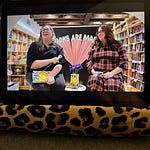
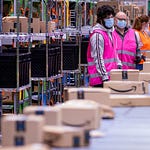
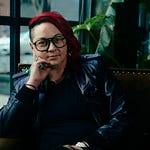




Share this post